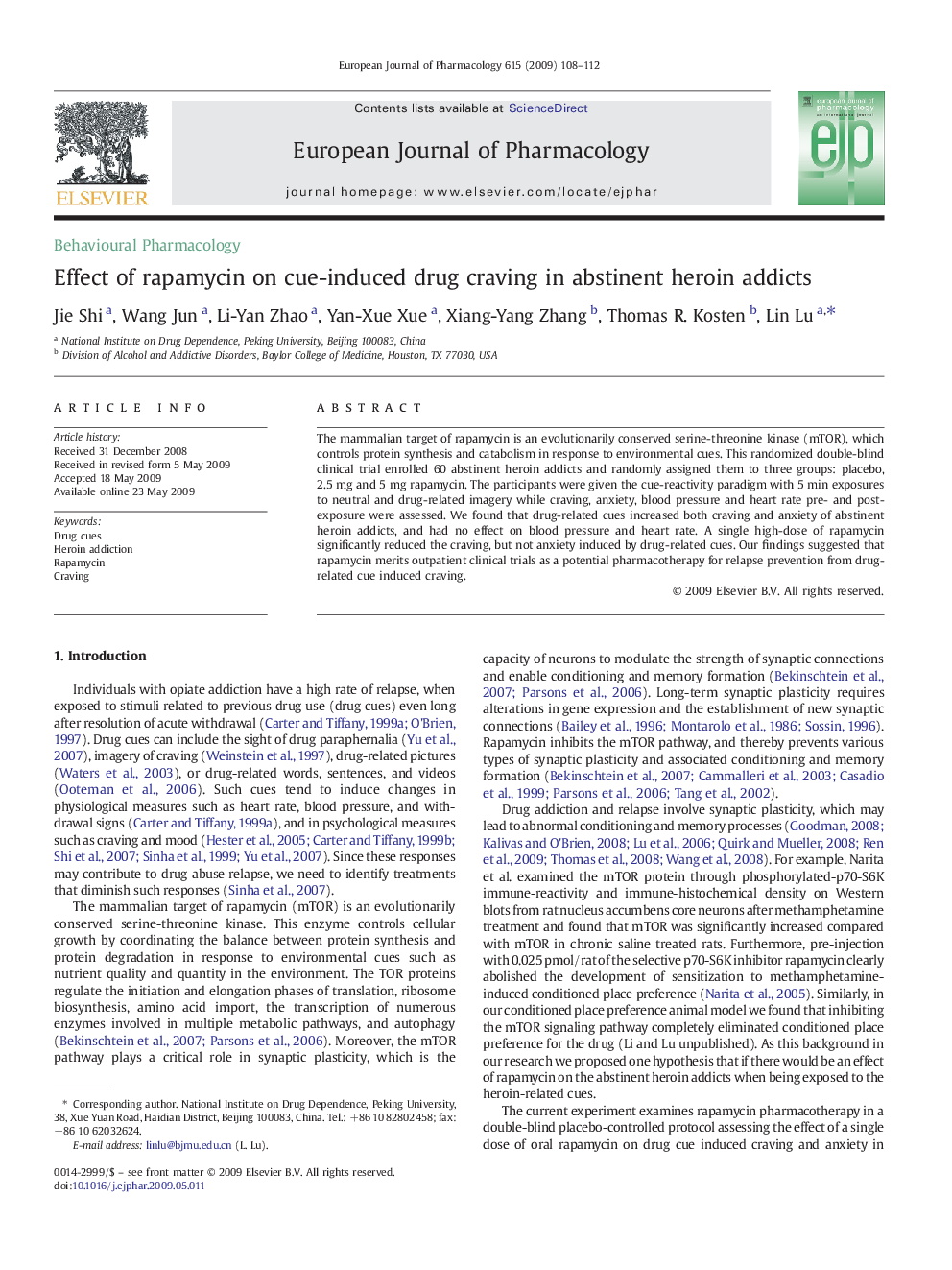| Article ID | Journal | Published Year | Pages | File Type |
|---|---|---|---|---|
| 2534211 | European Journal of Pharmacology | 2009 | 5 Pages |
The mammalian target of rapamycin is an evolutionarily conserved serine-threonine kinase (mTOR), which controls protein synthesis and catabolism in response to environmental cues. This randomized double-blind clinical trial enrolled 60 abstinent heroin addicts and randomly assigned them to three groups: placebo, 2.5 mg and 5 mg rapamycin. The participants were given the cue-reactivity paradigm with 5 min exposures to neutral and drug-related imagery while craving, anxiety, blood pressure and heart rate pre- and post-exposure were assessed. We found that drug-related cues increased both craving and anxiety of abstinent heroin addicts, and had no effect on blood pressure and heart rate. A single high-dose of rapamycin significantly reduced the craving, but not anxiety induced by drug-related cues. Our findings suggested that rapamycin merits outpatient clinical trials as a potential pharmacotherapy for relapse prevention from drug-related cue induced craving.
